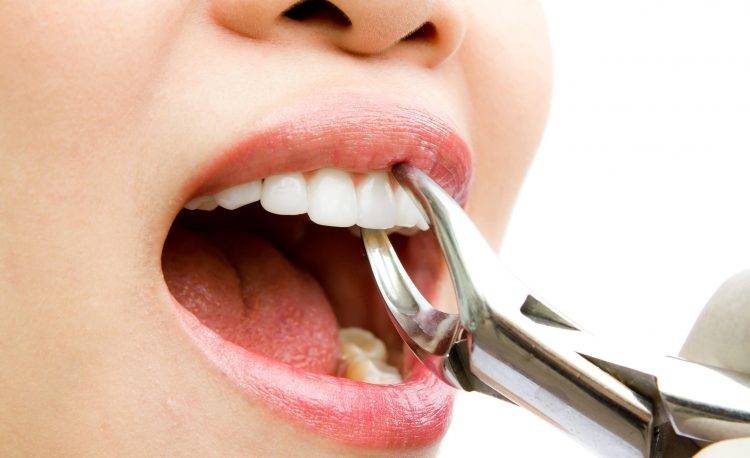Modern dentistry and oral health practitioners aim to preserve natural teeth. However, damaged or badly decayed teeth may need to be removed (extracted). A tooth may be removed using local anesthesia.
Dental Extraction is performed for a wide variety of reasons, few that can be mentioned are:-
- Tooth decay – If the decay is severe and the nerves and blood vessels in the tooth have been infected (pulp), and are unsuitable for root canal treatment.
- Impacted wisdom teeth – Sometimes impaction (the wisdom tooth grows at an angle and butts into the next-door molar or the gum) can cause infection and pain.
- Orthodontics (braces) – Teeth can erupt in many different positions, if this happens you may have to have teeth extracted so your other teeth can be brought into line.
- Periodontal disease – Bacterial infection under the gum damages the tissue which connects the tooth to the gum; as the disease progresses, the bone anchoring the tooth to the jaw begins to dissolve, resulting in the tooth becoming loose.
- Teeth that have been damaged by trauma (accident).
- Certain medical emergencies may require teeth to be extracted.
Tooth extraction procedures today are far less painful than ever before, thanks to powerful anesthetics and sedatives. In many cases, a patient who has tooth pulled experiences little or no discomfort, and only minor bleeding.
After examining your tooth the dentist will explain the reasons why your tooth needs to be extracted, an x-ray will be taken to help plan the best way to remove the tooth and to see if an abscess is present. If an abscess is present the dentist will give you a course of antibiotics before your tooth is extracted. Sedation or general anesthesia may also be offered depending on the difficulty of the procedure.
Wisdom Teeth
Adults have up to 32 teeth, of which four are wisdom teeth and these are the last to come through the gum. They are the situated at the extreme end of the jaw and usually appear between the ages of 17 and 25 although sometimes they can appear in later years also.
The dentist may also recommend extraction to deal with wisdom teeth that are causing problems. These teeth can cause various dental problems such as:-
- Including overcrowding of the existing teeth and impaction (the wisdom tooth grows at an angle and pushes into the adjacent molar or the gum).
- The teeth are not able to fully erupt through the gum and are causing an infection in the surrounding tissue; this is known as Pericoronitis.
- There is decay present – wisdom teeth will often decay as it is very difficult to clean them as thoroughly as the other teeth.
Following the removal of wisdom teeth, there is likely to be some discomfort. However, this will vary depending on how difficult it was to remove the tooth; it is not uncommon to experience some swelling for a few days. The dentist will advise on how best to reduce this discomfort and may recommend pain killers. A further dental appointment will be necessary for the dentist to check the healing process and remove any stitches if any.

